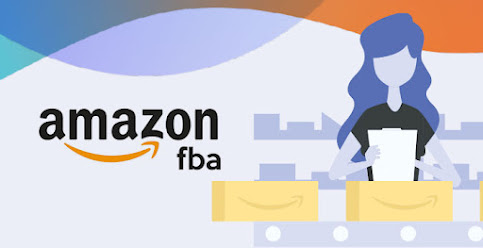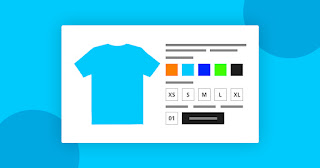How does Amazon FBA Work?
Do you want to start an e-commerce business and trade products on the world's largest marketplace, Amazon? Amazon Fulfillment can assist you with this.
What is Amazon FBA?
FBA stands for "Fulfillment by Amazon." This means that Amazon handles your logistical order processing, allowing you to focus on product selection, marketing, and sales.
With this Amazon solution, you delegate warehousing, shipping, returns, customer service, and invoicing to Amazon's external and experienced team.
If you want to sell on Amazon, another option besides FBA is Amazon FBM, which stands for Fulfillment by Merchant. In this case, the merchant handles storage, shipping, and so on.
Selling on Amazon FBA
Fulfillment by Amazon (FBA) is an Amazon service that allows commercial sellers to store their goods in Amazon's local warehouse.
They will be kept there until an order from close is placed, at which point the product will be delivered from the warehouse closest to the customer.
Customers receive their products much faster this way, and FBA products are the most trusted by customers.
What is the Amazon FBA process?
With Amazon FBA, you can store your products in Amazon logistics centers while Amazon handles order processing.
You can either hire and use freight forwarders or use Amazon's transportation partner program to transport your goods to the logistics centers.
You also work with freight forwarders here, but Amazon has negotiated special rates with them.
To take part in the FBA program, you must first become an Amazon merchant. Once registered, in your merchant account, select the "Sell on Amazon" option to enable FBA.
You can now choose between two different sales plans: Professional or Individual. Professional allows you to sell an unlimited number of products for a monthly fee of 39,- EUR (plus VAT).
The alternative is the Amazon individual plan, which charges 0.99 EUR per sale and has no monthly fee. That is, if you sell more than 40 products per month, you should consider upgrading to the Professional plan.
If you sell fewer than 40 products per month, Amazon FBA isn't worth it because the shipping to warehouses and preparation is too much work for Amazon with such low delivery volumes.
Amazon FBA Advantages and Drawbacks
Amazon FBA indeed provides numerous benefits to merchants. However, these come with fees, different obligations, and some drawbacks.
Amazon FBA is generally recommended to Amazon merchants if their turnover allows it and their target market is primarily in the United States or Europe.
Benefits
A warehouse of your own is not required.
Placement of shopping cart in the field
"Shipping Through Amazon" Logo
Returned items require less effort and Returns
Logo and Prime Status
Free shipping available for Prime customers
Greater exposure on platforms (because that Prime)
Shipping via Amazon as well as Prime products is highly dependable.
Customer service is available 24/7 in the local language.
Amazon FBA supports growth
Amazon assumes many of the tasks
Favorable shipping rates
The inventory can be easily monitored
Amazon lists item dimensions for storage
Amazon Buy Box
Shipping with tracking
Risks
FBA costs
Appropriate labeling required
Tax registration(s) and the regular pre-declarations necessary
There is no brand of its own
They are not feasible.
Is Amazon Fulfillment a good investment for me?
If you want to expand as an online retailer in the United States or Europe while outsourcing as much work as possible to third-party service providers, Amazon FBA is a good option.
The service costs are kept within reasonable limits, and the potential is extremely high because you get to focus on your product and core business.
However, as with so many other topics, it ultimately depends on the individual case - on sales, your target market, and a variety of other factors.
Plan your strategy and determine whether it is a good fit for you. But, big and profitable Amazon merchants typically use Amazon FBA.
The storage costs are low and inexpensive shipping costs are a benefit. Also, the higher visibility on Prime and the speedy delivery times will earn you an advantage over non-FBA sellers. It is a fact that FBA sellers will be ahead in the long term.
Today you're experiencing huge growth in the field of e-commerce, not just on the site of the merchant, but also on the consumer side.
Beginning an Amazon FBA business isn't that difficult. It just requires certain tasks you need to take on one at a time. The first and most important thing is the formation of your company and the development of products that you must be taking care of.
After the company is operating and all legal and tax concerns have been resolved you are now able to identify and develop your product and it will be the deciding element that will determine the success of your venture or its failure.
Find products with large demand and relatively low competition. Then, create the ideal Amazon listings for your item.
If you can plan well and distinguish yourself from rivals with your distinctive selling proposition, you'll be able to get high sales. The right tools like SellerApp will assist you not just to locate the best products, but also to manage your finances or demonstrate your pricing is correct.




Comments
Post a Comment